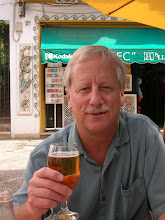"Ward, we all want to be optimistic, that is why we get up in the morning every day even though we know what the end will bring, more taxes." That was a comment to me by a friend. Pretty funny stuff.
The Big Short by Michael Lewis was a page-turner that I had difficulty putting down. About the guys who really foresaw the financial crisis coming (no, not Thom Hartman). Now I have started 13 Bankers by Simon Johnson and James Kwak, who argue that Wall Street is the newest oligarchy and that the big banks need to be broken up, much like Standard Oil was during T.R.'s time. So far, so good. They recognize that Hamilton was essentially right about finance and Jefferson was wrong.
A debate seems to be coalescing around this issue. Here, Paul Krugman thinks this position is wrong and that regulation is what is needed. I find his argument that because small bank failures in the 1930's led to a crisis, it is not "bigness" that counts, not very convincing, just as I find his arguments for taxing Chinese goods unconvincing. Here, here and here are three Johnson/Kwak posts arguing their position. The jury is still out for me, but I am hoping regulation can work.
The unintended consequences of an action or inaction are always difficult to ascertain. My uncle argues that we never should have based a retirement system on the contributions of current workers to previous generations. This may be fundamentally correct. But Social Security is here to stay. I wonder if the principle, though, of fixing the current by imposing upon future generations does not contain a general lesson that we should learn. He thinks people will wake up someday and not be so "greedy." I am more pessimistic about the human condition. People believe that it would be unjust to take away benefits that they have been promised (like Madoff investors?).
Here is another possibly surprising unintended consequence. What if we had not funded the muhjadeen in Afghanistan and Russia still ruled the country? No weapons for crazy Islamist terrorists. No place for Al Qaeda to train for 9-11. No need to be there now.
I am not a big supporter of Thomas Friedman, but I think that here he is on the mark. Why should we expect anything to change in Afganistan or Palestine? Same old stuff. I think Obama's mission is going to fail. I guess the question is what were the real options? There are those who say we should stay until it is fixed. After all, "the surge worked." It seems rational to give it a chance, but I am glad that it is supposedly time-limited.
The Cold War strategies in general have had huge unintended consequences. The U.S. and Russia ended up arming the rebels of the world in their "the enemy of my enemy is my friend" type of thinking.
We truly have great difficulties predicting the future. Maybe this calls for a couple of quotes from Nassim Taleb, who has added a new chapter for the paperback edition of The Black Swan, which is available on-line by going to his website or The Browser at the bottom of this page.
"Second, Mother Nature does not like anything too big. The largest land animal is the elephant, and there is a reason for that. If I went on a rampage and shot an elephant, I might be put in jail, and get yelled at by my mother, but I would hardly disturb the ecology of Mother Nature. On the other hand, my point about banks in Chapter 14—that if you shot a large bank, I would “shiver at the consequences” and that “if one falls, they all fall”—was subsequently illustrated by events: one bank failure, that of
Lehman Brothers, in September 2008, brought down the entire edifice. Mother Nature does not limit the interactions between entities; it just limits the size of its units. (Hence my idea is not to stop globalization and ban the Internet; as we will see, much more stability would be achieved by stopping governments from helping companies when they become large and by giving back advantages to the small guy.)...
I was once selected to be one of a group of a hundred who went to Washington to spend two days discussing how to solve the problems of the crisis that started in 2008. Almost all the biggies were included. After an hour of meeting, and during a speech by the prime minister of Australia, I walked out of the room because my pain became intolerable. My back would start hurting upon looking at the faces of these people. The center of the problem is that none of them knew the center of the problem.
This makes me convinced that there is a unique solution for the world, to be designed along very simple lines of robustness to Black Swans—it will explode otherwise."
The Generalist interviews me
2 hours ago




No comments:
Post a Comment